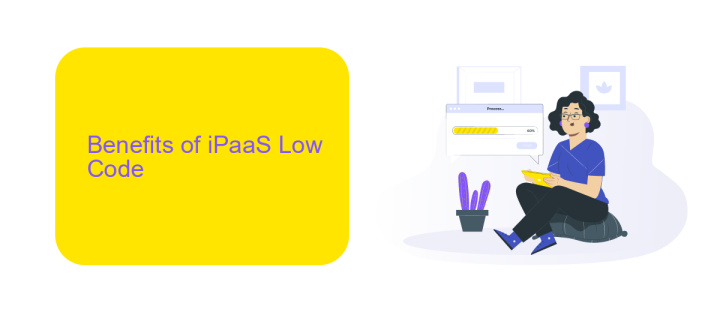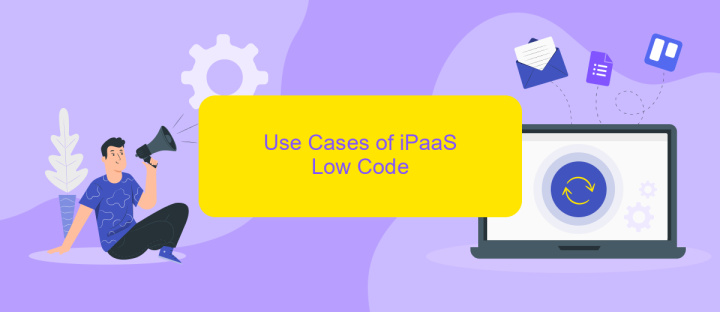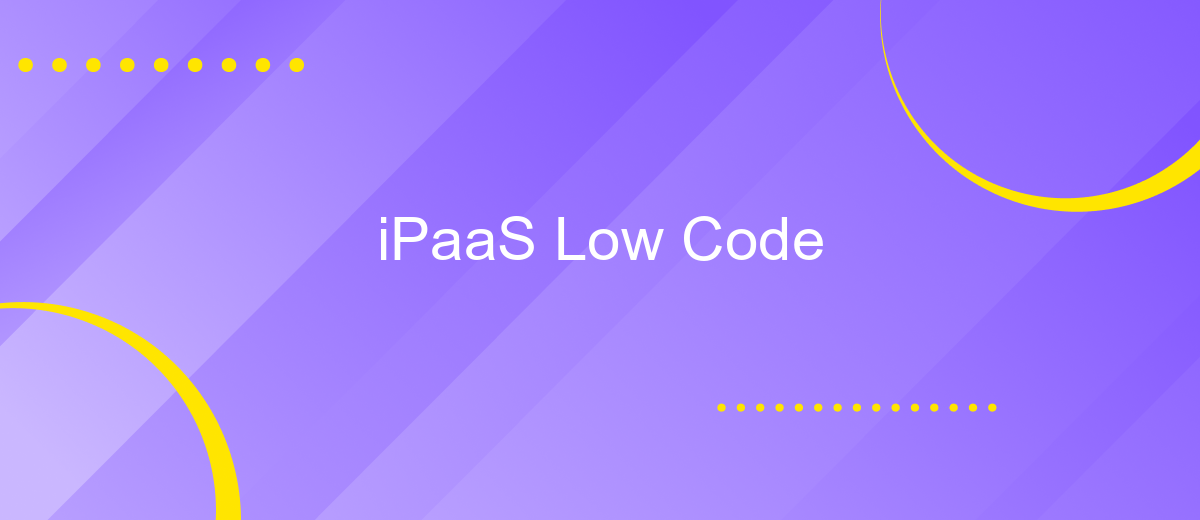iPaaS Low Code
In today's rapidly evolving digital landscape, businesses are increasingly turning to Integration Platform as a Service (iPaaS) solutions to streamline their operations. Low-code iPaaS platforms empower organizations to integrate applications and data with minimal coding, reducing development time and costs. This article explores the benefits of low-code iPaaS, key features, and how it can drive innovation and efficiency across various industries.
Overview of iPaaS Low Code
iPaaS (Integration Platform as a Service) Low Code solutions offer a simplified approach to integrating various applications and services. These platforms enable users to connect disparate systems without the need for extensive coding knowledge, making it accessible to a broader range of users, including business analysts and non-developers.
- Streamlined integration processes
- Drag-and-drop interface for ease of use
- Pre-built connectors for popular applications
- Real-time data synchronization
- Scalability to accommodate growing business needs
One notable example of an iPaaS Low Code solution is ApiX-Drive. This service facilitates the creation of seamless integrations between various applications through an intuitive interface. Users can quickly set up data exchanges and automate workflows without writing a single line of code. By leveraging platforms like ApiX-Drive, businesses can enhance their operational efficiency and reduce the time and cost associated with traditional integration methods.
Benefits of iPaaS Low Code

iPaaS Low Code offers numerous benefits for businesses seeking to streamline their integration processes. One of the primary advantages is the significant reduction in development time and costs. By leveraging low-code platforms, companies can create and deploy integrations without the need for extensive coding knowledge, which accelerates project timelines and reduces dependency on specialized IT staff. This democratization of development empowers non-technical users to build and manage integrations, fostering greater collaboration and innovation within organizations.
Additionally, iPaaS Low Code solutions enhance scalability and flexibility. Platforms like ApiX-Drive enable seamless integration of various applications and services, allowing businesses to adapt quickly to changing needs and market conditions. These solutions often come with pre-built connectors and templates, simplifying the integration process and ensuring compatibility across different systems. As a result, companies can focus on their core operations while maintaining a robust and adaptable IT infrastructure. The ability to easily modify and extend integrations ensures that businesses remain agile and responsive in a rapidly evolving digital landscape.
Use Cases of iPaaS Low Code

iPaaS Low Code solutions are revolutionizing the way businesses handle integrations and automate workflows. These platforms empower users to create complex integrations without extensive coding knowledge, making them accessible to a broader range of professionals.
- Automated Data Syncing: iPaaS Low Code platforms allow for seamless data synchronization between various applications, ensuring that all systems are up-to-date in real time.
- Customer Relationship Management (CRM): By integrating CRM systems with other business tools, companies can streamline customer data management and improve client interactions.
- Marketing Automation: Businesses can automate marketing campaigns by connecting email marketing platforms, social media tools, and CRM systems to deliver personalized content to their audience.
- eCommerce Integration: iPaaS Low Code solutions facilitate the integration of eCommerce platforms with inventory management, payment gateways, and shipping services for a smooth operational flow.
- API Management: Services like ApiX-Drive enable users to easily configure and manage API integrations, reducing the complexity of connecting disparate systems.
These use cases highlight the versatility and efficiency of iPaaS Low Code platforms. By leveraging these tools, businesses can significantly enhance their operational capabilities, reduce manual efforts, and achieve faster time-to-market for new initiatives.
Implementation Considerations

When implementing an iPaaS Low Code solution, it is crucial to consider several key factors to ensure a successful deployment. First, evaluate the specific integration needs of your organization, including the types of applications and data sources that need to be connected. This will help in selecting the most suitable iPaaS platform that aligns with your technical requirements and business objectives.
Another important consideration is the ease of use and learning curve associated with the platform. A low-code solution should empower non-technical users to create and manage integrations without extensive programming knowledge. Platforms like ApiX-Drive offer user-friendly interfaces that simplify the integration process, making it accessible to a broader range of users within the organization.
- Assess integration requirements and compatibility with existing systems
- Evaluate the user interface and ease of use for non-technical staff
- Consider scalability and future growth of integration needs
- Ensure robust security and compliance features
Finally, it is essential to plan for ongoing maintenance and support. Regular updates and monitoring will ensure that integrations continue to function smoothly and adapt to any changes in the connected applications. Choosing a reliable iPaaS provider like ApiX-Drive can offer continuous support and updates, ensuring long-term success of your integration strategy.
Future of iPaaS Low Code
The future of iPaaS Low Code is poised to revolutionize how businesses approach integration and automation. With the increasing demand for seamless connectivity between various platforms and applications, iPaaS solutions are becoming more sophisticated, offering advanced features that require minimal coding skills. This shift allows non-technical users to create and manage complex integrations, significantly reducing the time and cost associated with traditional development methods. As more organizations adopt digital transformation strategies, the role of iPaaS Low Code will become even more critical in ensuring efficient and scalable operations.
One notable example of this evolution is ApiX-Drive, a service that simplifies the process of setting up integrations between various systems. By leveraging ApiX-Drive, businesses can easily connect their CRM, marketing, and other essential tools without extensive coding knowledge. This democratization of integration capabilities empowers a broader range of users to optimize workflows and enhance productivity. As iPaaS Low Code continues to evolve, we can expect even more user-friendly interfaces and powerful automation features that will further streamline business processes and drive innovation.


FAQ
What is iPaaS Low Code?
How does iPaaS Low Code benefit businesses?
What types of integrations can be achieved with iPaaS Low Code?
Is it necessary to have technical skills to use iPaaS Low Code?
How can businesses start using iPaaS Low Code for automation and integration?
Apix-Drive is a universal tool that will quickly streamline any workflow, freeing you from routine and possible financial losses. Try ApiX-Drive in action and see how useful it is for you personally. In the meantime, when you are setting up connections between systems, think about where you are investing your free time, because now you will have much more of it.

